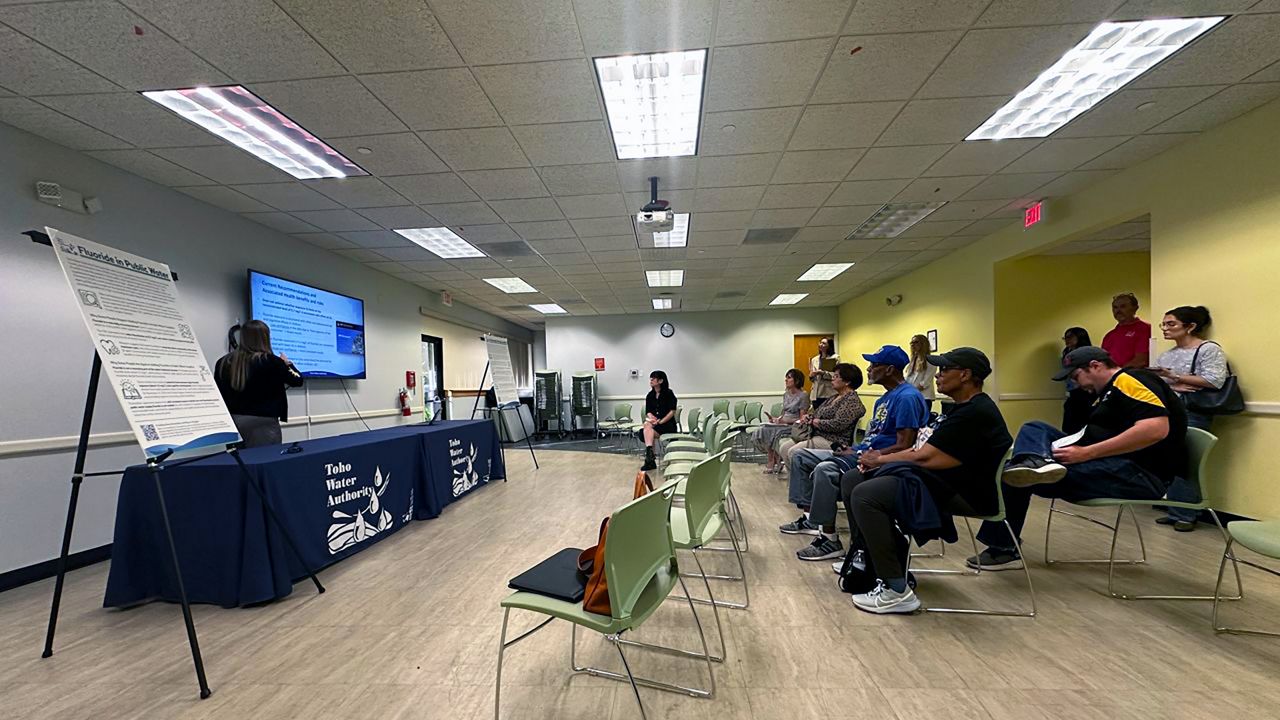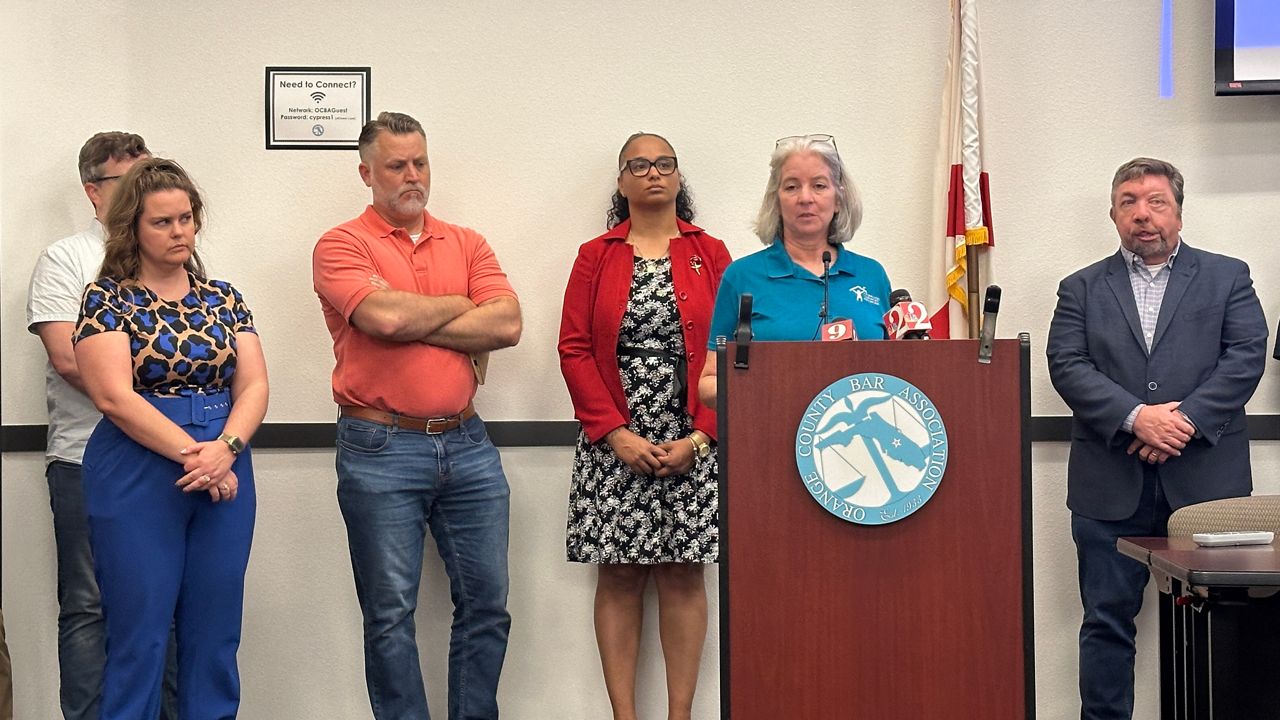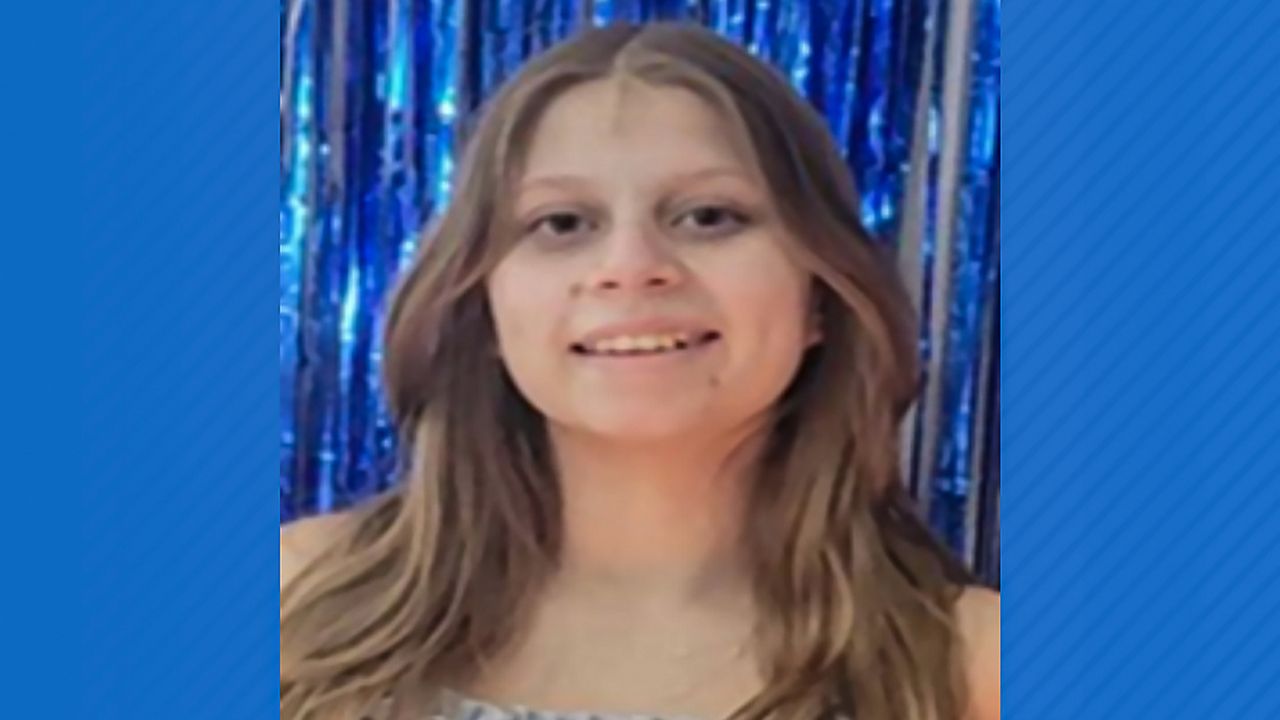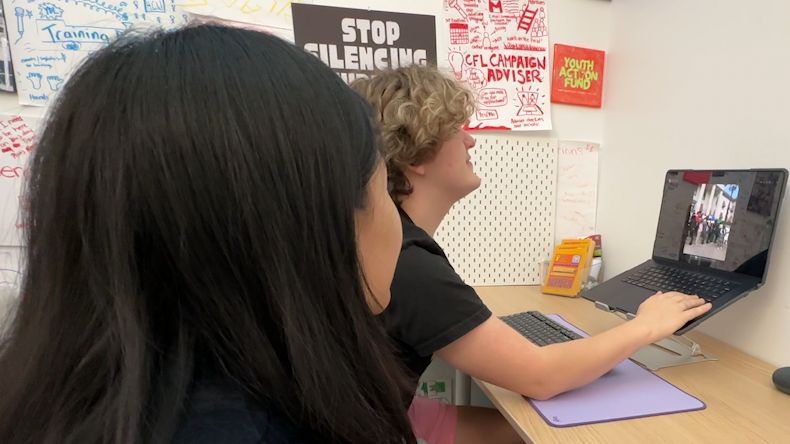ORLANDO, Fla. — The state attorney’s office covering Orange and Osceola counties is updating the juvenile civil citation program, with the goal is to help nonviolent juvenile offenders stay out of the system.
What You Need To Know
- State Attorney Andrew Bain’s expansion of the juvenile civil citation program allows juveniles to complete multiple citation requirements for eligible misdemeanor traffic and domestic violence offenses
- Youth advocate organizations comment on the benefits of this expansion, and the need for it
- Local law enforcement agencies look forward to the expansion
The program now allows juveniles to complete multiple citation requirements at the same time for eligible misdemeanor traffic and domestic violence offenses.
Another component to this expansion would play a part in local schools. State Attorney Andrew Bain says he’s working to hire a juvenile civil citation coordinator to act as a liaison with local schools.
He says when cases go into his office for a possible arrest of a juvenile, it will be the coordinator’s job to go back out and connect with that officer or deputy and encourage them to issue a civil citation instead.
Josh Laberee, chairman of the board for The VERB Kind, a nonprofit founded in Orange County, is serving 11 juvenile detention centers in Florida.
The nonprofit mentors kids in juvenile detention centers, giving them hope in and after they are out.
He says this expansion will be beneficial.
“It’s an incredible opportunity for us to address a large percentage of these kids that are first-time nonviolent offenders, that become part of the system, to be able to number one: educate them and give them an opportunity to create their course of action without having to become incarcerated,” says Laberee. “If you understand the kids, and see and deal with them regularly like we do, there is a large percentage of them that are there that are first-time nonviolent offenders that can really take advantage of this opportunity and allow them to step into a life of productivity and positivity.”
Bain calls it a big effort by his office to expand the juvenile civil citation program. The juvenile civil citation coordinator will be employed by his office in conjunction with a Department of Juvenile Justice grant.
He says the goal is to hire this person before the summer.
“Their main job is to go out, meet with the school resource officers, go to briefings, go to trainings for law enforcement, build relationships with law enforcement officers, and encourage them to issue these juvenile civil citations,” Bains said. “Everybody that has kids understand that you want to be able to discipline the child as quickly or as close to the behavior that was calling for discipline, which civil citation allows us to do.”
He says the goal is to connect with law enforcement and reopen those lines of communication.
“So, that we can allow for the juveniles to not get arrested and we can get the services right into the home, almost the next day,” he said.
Bain says juveniles escalate their criminal behavior at a much faster rate than adults. He says its critical to curb their behavior before it gets out of control.
“Juvenile civil citation is one of our strongest tools that we have to get in and try to curb those behaviors right away,” he continued.
He said when he was younger, the car he once drove had a missing a license plate. He says that’s a misdemeanor offense in Florida.
So, the goal is to get these juveniles who make mistakes like he did and avoid falling victim to a long criminal history.
“Technically, I could've been stopped and arrested for that charge or issued me a criminal citation, which would have landed me in adult court. That's one of the biggest reasons why I wanted to make sure that traffic was part of the expansion, to one of our juvenile civil citation programs because it's something as minor as that could have prevented me from becoming a lawyer possibly,” he said.
Bain says this will allow prosecutors to devote time to violent perpetrators.
He also says he’s also piloting a literacy program for juveniles.
He says most of the kids in the juvenile justice system are illiterate and the literacy tutoring and mentorships to juveniles in the juvenile justice system will translate to collaborating with organizations like Eight Waves, Adult Literacy League, Page 15, Verbs and The Communication Disorders Clinic at UCF’s School of Communication Sciences.
Spectrum News 13 reached out to several law enforcement agencies that agree with the expansion.
The Orange County Sheriff’s Office sent Spectrum News 13 a statement that said: Sheriff Mina is committed to the juvenile civil citation program and believes that anything we can do to deter young people from committing crimes is a worthy program.
“Understanding that a foolish, non-violent act made as a teen should not have a negative impact on a young person’s life moving forward, the Orange County Sheriff’s Office has embraced the juvenile civil citation program,” said the media relations team. “We have been using JCC’s for several years now, and in that time, the number of JCC’s continues to increase and we have seen the number of juvenile arrests — particularly for nonviolent crimes — decrease dramatically (down approximately 60 percent from 2018-2023).”
The Osceola County Sheriff’s Office stated it is working with the state attorney's office and its newly updated juvenile citation program.
“Hopefully, this will prevent juveniles from getting incarcerated for petty crimes. We are looking forward to this partnership and collaborating with the state attorney's office so we can devote more attention to fostering better outcomes for our youth and community,” said the media team for the Osceola County Sheriff’s Office.









